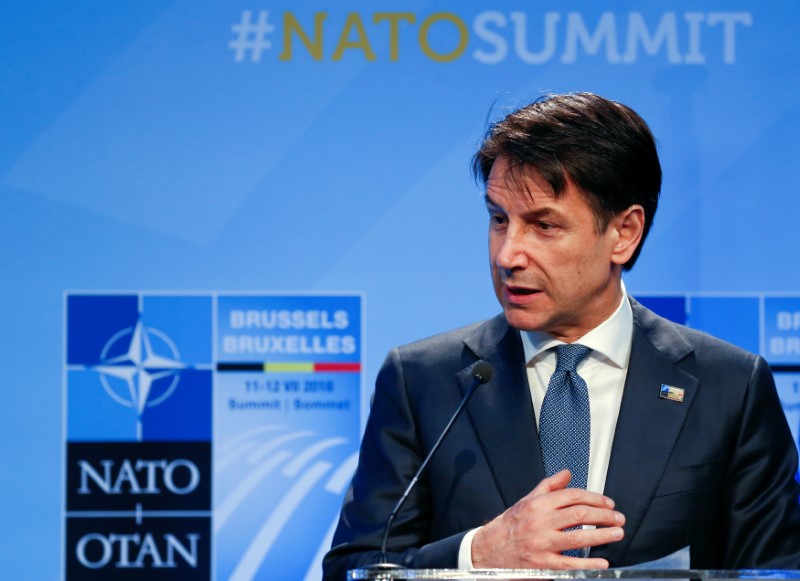 © Reuters. NATO Alliance Summit in Brussels
© Reuters. NATO Alliance Summit in BrusselsROME (Reuters) – Italy will negotiate with the European Commission over next year’s budget, defending its interests but not be “foolish” in its demands, Prime Minister Giuseppe Conte said on Wednesday.
“We will negotiate with the European Commission with a serious, reasonable and courageous programme that will protect our interests,” Conte told a news conference.
“We will be very serious, rigorous, but we will not be unreasonable and foolish in our demands,” he added.
His remarks helped calm markets which fear the government’s ambitious plans for tax cuts and higher spending could push up Italy’s debt, which is the highest in the euro zone after Greece’s as a proportion of national output.
The government was due to meet on Wednesday to discuss the 2019 budget, which will be drawn up next month and must be presented to the Commission for approval in October.
Conte said the cabinet was working as a unit and dismissed reports EU Affairs Minister Paolo Savona was working on a plan of public investments worth 50 billion euros which Italy would insist should not be included in its deficit calculations.
“There is no plan A, B or C, there is a single budget that the government is working on …the contribution of minister Savona is fundamental but it is part of shared framework,” he said.
The 81-year-old Savona was orginally chosen by the anti-establishment coalition for the key role of economy minister, but was vetoed by the head of state due to his critical views on Italy’s membership of the euro zone.
Conte spoke shortly after Economy Minister Giovanni Tria warned in a newspaper interview that the economy was slowing and next year’s budget deficit would be higher than previously targeted.
Fusion Media or anyone involved with Fusion Media will not accept any liability for loss or damage as a result of reliance on the information including data, quotes, charts and buy/sell signals contained within this website. Please be fully informed regarding the risks and costs associated with trading the financial markets, it is one of the riskiest investment forms possible.
Source: Investing.com


























